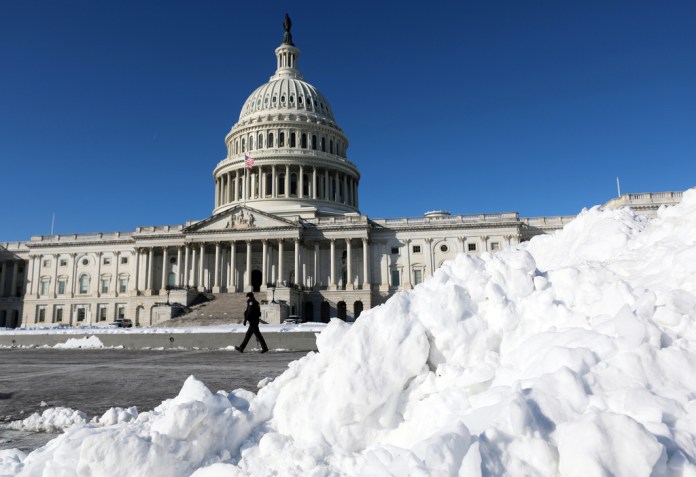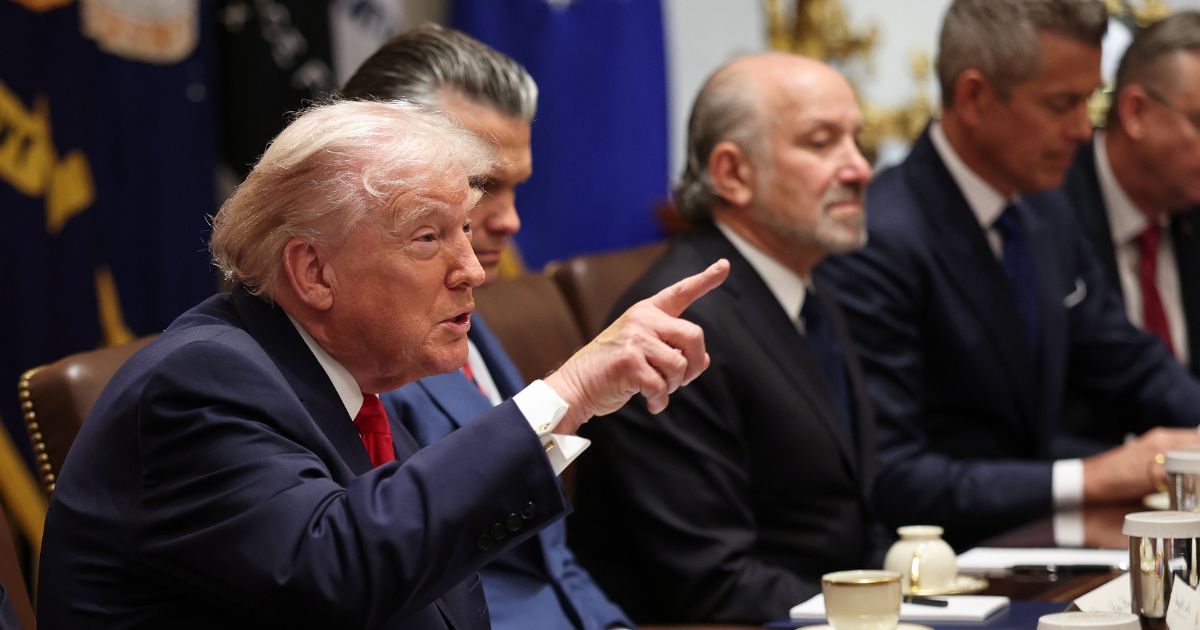‘Big, Beautiful Bill’ Immediately Runs Into Trouble in Senate After Squeaking Through House
The “One Big Lovely Bill,” which has received backing from President Donald Trump, narrowly passed the House with a vote of 215 to 214, with no Democratic support and two Republicans opposing it. The bill’s passage is significant but faces challenges in the Senate, where Republicans hold a slim majority and can afford to lose only three votes.Key Republican senators, including Rand Paul and Ron Johnson, have voiced concerns about the potential increase to the national debt and the impact on future deficits, suggesting major changes to the legislation might be needed to secure their support. The Congressional Budget Office has projected that the bill could add $2.4 trillion to the debt over the next ten years, which has raised red flags among fiscal conservatives. The bill will likely need to be reconciled between the House and Senate before it can proceed to the President’s desk for signing.
The President Donald Trump-backed “One Big Beautiful Bill” passed the House Thursday morning by a one-vote margin, so now it is off to the Senate, where it appears to have another high hurdle to cross.
The final House vote on the legislation was 215 to 214, with no Democrats supporting it, while two Republicans — Reps. Thomas Massie of Kentucky and Warren Davidson of Ohio — voted against it.
House Freedom Caucus Chair Andy Harris of Maryland voted “Present,” allowing the bill to secure a majority.
Every Democrat voted against the Big Beautiful Bill (BBB).
2 Republicans – Thomas Massie (KY) and Warren Davidson (OH) – voted NO.
House Freedom Caucus Chair Andy Harris (MD) voted “Present.” pic.twitter.com/4DDyu9IExI
— Publius (@OcrazioCornPop) May 22, 2025
The Republicans also have a slim majority in the Senate — 53 to 47 — meaning they can only lose three votes and still pass the bill, with Vice President J.D. Vance casting the tie-breaker.
Politico reported that GOP Sens. Rand Paul of Kentucky, Ron Johnson of Wisconsin, Susan Collins of Maine, and Lisa Murkowski of Alaska are likely all going to want major changes to the legislation to secure their support.
Paul told Outkick’s Clay Travis Thursday that under the Republican plan, $5 trillion will be added to the debt over the next two years.
“Somebody’s got to stand up and shout, ‘No!’”
.@RandPaul tells @ClayTravis and @BuckSexton how the GOP could actually cut spending: “It can be done, and it can be done by cutting only a few percentage points.” pic.twitter.com/pyTYEKNNGg
— The Clay Travis & Buck Sexton Show (@clayandbuck) May 22, 2025
Paul said his main concern is the debt ceiling hike.
“I think if you’re going to raise the debt ceiling $4 or $5 trillion, it indicates that the project afoot isn’t going to fix the deficit at all,” he said.
“Once Republicans vote for this, Republicans are going to own the deficit.”
Paul told Senate GOP leadership that he is a hard no on the bill, according to The Hill.
“I’ve told them if they’ll take the debt ceiling off of it, I’ll consider voting for it,” Paul recounted.
“We’ve never, ever voted to raise the debt ceiling this much. It’ll be a historic increase. I think it’s not good for conservatives to be on record supporting a $4 [trillion] or $5 trillion increase in the debt ceiling,” he said.
Johnson made a similar point on Daniel Horowitz’s CR Podcast Thursday, saying the One Big Beautiful Bill will increase annual deficits.
“If there would be one principle, one goal, of this Republican budget reconciliation package, it should be to reduce that 10-year deficit, to reduce that average annual deficit, but we’ll actually increase it,” the senator said.
“This [bill] simply doesn’t meet the moment,” Johnson contended.
The “One Big Beautiful Bill” that Congress is working on is certainly big, but beauty is in the eye of the beholder. I’m asking the president and congressional leaders to reconsider a multistep strategy on budget reconciliation, writes @SenRonJohnsonhttps://t.co/qqZMFiWdMv
— Wall Street Journal Opinion (@WSJopinion) May 13, 2025
Johnson said he’s going to be harder to convince to vote for the bill than his colleagues in the House were.
“In the House, President Trump can threaten to primary, and those guys want to keep their seats … Can’t pressure me that way,” fiscal conservative Sen. Ron Johnson said, according to Politico.
The Washington Post reported that the Congressional Budget Office forecasted that the One Big Beautiful Bill will add $2.4 trillion to the debt over the next 10 years, on top of the current annual deficits forecasted.
However, supporters of the legislation argue that the CBO miscalculated the impact of the 2017 Tax Cuts and Jobs Act, because it did not adequately factor in the impact of economic growth the tax reforms had on federal revenues.
In 2017, before the TCJA’s passage, total revenue was $3.3 trillion. Last year, with the tax cuts largely in place, revenue was $4.9 trillion.
The House Ways and Means Committee noted that in the five years after the TCJA’s passage, “tax revenues averaged 0 billion per year above CBO’s post-2017 projections.”
Further, by 2022, that figure was $884 billion higher.
In addition to Paul’s and Johnon’s opposition, Murkowski said, “There are some things that we want to address on the Medicaid side that I think are challenging for us in Alaska,” according to Politico.
So the One Big Beautiful Bill still has a challenging path in the Senate. It likely will pass in some form, but then the Senate and House bills will have to be reconciled before final votes. And if all goes as Republicans hope, the bill will go to Trump’s desk for a signature.
Advertise with The Western Journal and reach millions of highly engaged readers, while supporting our work. Advertise Today.
" Conservative News Daily does not always share or support the views and opinions expressed here; they are just those of the writer."




